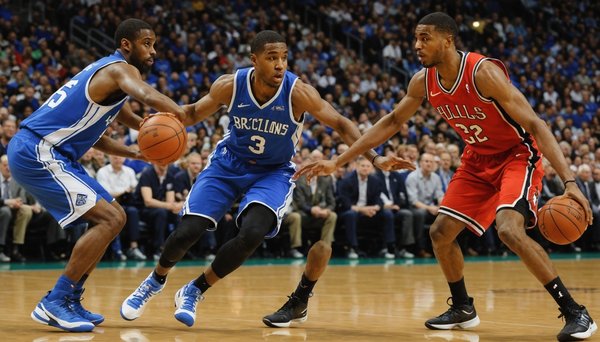UK Sport’s Role in Basketball’s Rising Popularity
UK Sport influence on basketball growth is significant through strategic initiatives and targeted funding. The sport organisation impact is clearly seen in how basketball infrastructure has improved, enabling better training facilities and wider community engagement. By allocating resources specifically for basketball development, UK Sport has directly contributed to the sport’s accessibility and appeal nationwide.
Key initiatives include investment in grassroots programs and talent identification systems. These efforts provide young players with opportunities to develop skills and transition into professional levels. This structured support from UK Sport creates pathways that sustain basketball growth over time.
Moreover, landmark policies aimed at increasing diversity and inclusion have reshaped basketball’s perception. Campaigns promoting basketball as a dynamic and inclusive sport attract new participants from various backgrounds. This not only boosts player numbers but also enhances the sport’s profile across the UK.
Overall, UK Sport influence is evident in both practical developments and cultural shifts, ensuring basketball’s momentum continues forward.
Statistical Evidence and Trends in UK Basketball Growth
Examining basketball participation statistics reveals a clear uptick in player numbers across the UK. Since targeted initiatives were introduced, basketball club memberships have increased significantly, showing robust growth compared to previous years. These intervention-driven rises are documented through consistent sports data UK collection, confirming that basketball is becoming a more widely embraced sport.
When assessing growth trends, basketball’s expansion outpaces many traditional UK sports, with annual growth rates in participation notably higher than several other mainstream activities. This surge reflects both increased accessibility and the influence of community programs, which have successfully sparked interest among diverse populations.
Demographically, basketball participation is shifting, with a noticeable rise in engagement among younger age groups and varied regions beyond major urban centers. This geographic broadening indicates a spreading enthusiasm for basketball, moving it away from being a niche urban sport to a more national pastime with potential for continued growth. These trends are supported by the latest sports data UK, which tracks participation changes across demographics and locations, highlighting basketball’s evolving presence in the UK sporting landscape.
Comparative Analysis: Basketball in the UK vs Other Sports
Basketball in the UK faces distinct challenges when compared to dominant sports like football, rugby, and cricket. Unlike football, which commands widespread media coverage and entrenched cultural importance, basketball struggles for consistent visibility. This discrepancy affects public awareness and the sport’s perceived prestige.
Access and engagement with basketball at grassroots levels remain limited compared to football. Football benefits from a well-established infrastructure supporting youth participation, whereas basketball often depends on localized clubs and schools. However, recent efforts in cross-sport development aim to bridge this gap by integrating basketball programs within multi-sport initiatives, promoting diverse athletic skills and broader exposure.
The UK’s sports culture still heavily favors traditional games, making it challenging for basketball to build a substantial following. Yet, the influence of initiatives that encourage participation across multiple sports has positively impacted basketball’s trajectory, creating pathways for talent development and community involvement. This cross-sport emphasis fosters a more inclusive environment where basketball can progressively carve out its niche alongside established favorites.
Case Studies: Successful Basketball Programs and Initiatives
Exploring notable basketball programs UK sheds light on how grassroots basketball initiatives can foster community development. One standout case study involves school-based basketball projects that emphasize inclusivity and skill-building. These programs often provide free coaching sessions, equipment, and competitive opportunities, making basketball accessible to youth across socioeconomic backgrounds.
A key success factor observed in top-performing clubs is their strong community ties. For example, clubs that partner with local schools and organizations benefit from increased participation and sustained interest in basketball. Such partnerships create a feedback loop where community members feel invested in the program’s success.
Above-average basketball growth is frequently seen in regions that prioritize coaching education and facility availability. By training coaches to deliver engaging, skill-focused sessions, programs increase player retention and enjoyment. Access to well-equipped courts further supports consistent practice and competition.
Replicable models from these case studies highlight the importance of:
- Investing in grassroots basketball with targeted resources
- Building multi-stakeholder collaborations to expand reach
- Emphasizing inclusive environments that welcome diverse participants
These elements create a foundation for basketball programs UK to thrive, demonstrating the sport’s potential as a catalyst for positive community impact.
Broader Social and Community Impacts
Basketball plays a pivotal role in strengthening the sports community benefits by fostering inclusivity and enhancing social cohesion. Through its universal appeal, basketball brings together diverse groups, breaking down barriers tied to age, background, or socioeconomic status. This inclusivity encourages a sense of belonging and unity, which are fundamental to vibrant communities.
Youth engagement through basketball offers valuable opportunities for personal development and education. Participation in basketball promotes discipline, teamwork, and leadership skills—qualities that extend beyond the court. Programs centered on basketball often integrate educational support, mentoring, and life skills training, creating a comprehensive development environment for young people. This direct engagement helps deter youth from negative influences by providing positive outlets and goals.
Experts highlight that the social impact of basketball extends to long-term societal benefits. Communities with active basketball programs often report reduced crime rates and increased community pride. Additionally, basketball fosters intergenerational interactions, nurturing respect and cooperation across age groups. This broad social cohesion forms a foundation for sustainable community growth and resilience.
